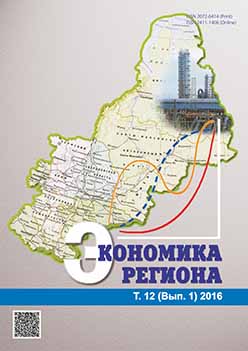Основные направления преодоления вызовов XXI века в агросфере
The Main Directions to Overcome the Challenges of the 21st Century in Agriculture
Author(s): Fanus Nagimovich Garipov, Khamid Nurislamovich Gizatullin, Zukhra Fanusovna GaripovaSubject(s): Economy
Published by: Институт экономики Уральского отделения Российской академии наук
Keywords: unbalanced diet; preservation of the natural balance; genetic potential of productivity, expansion of range of crops; expansion of animal species; output of nutrients;
Summary/Abstract: In the article, on the basis of the world and national approaches to the solution of the food problem, the main vectors of theagricultural development aimed at overcoming the challenges of the XXI century and eventually attain the food independenceof Russia are proved. The reasons for the decline per capita food production in the world are revealed; the increasing influence,in addition to the population growth, of the equalization of level and quality of food on its dynamics is noted. The dominantcurrent public incentives form the growth rate of demand in advance the production. It is proposed to correct the strategy ofagrarian development, while maintaining the principles of multiculturalism in the economy, focusing on the leading role ofthe large, vertically integrated business entities, and on the import substitution of the basic foodstuffs through the involvementof regional internal resources, including the development of cooperation principles, historically attended the emergence ofcommodity-money relations in the village. The growth of productivity of production factors is grounded as the main vectorthat may rectify the situation. It is recommended to diversify a set of cultivated plants and breeds of animals, as well asto develop a new commodity structure of production. The need for food imports is stressed in view of the fact that for theimported products, which are manufactured using primarily the renewable resources, Russia has to pay the price of thepotential non-renewable natural resources, making it strategically disadvantageous. In order to achieve the sustainabilityof the basic parameters and enhance the results of the agricultural activity, it is recommended to use the tools of economicand mathematical modeling of the distribution of economic resources. The findings will be reflected in the justification of thestrategy for the regional agricultural development
Journal: Экономика региона
- Issue Year: 12/2016
- Issue No: 1
- Page Range: 105-116
- Page Count: 12
- Language: Russian

